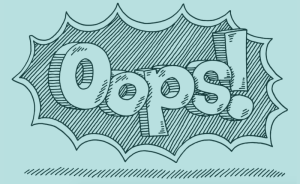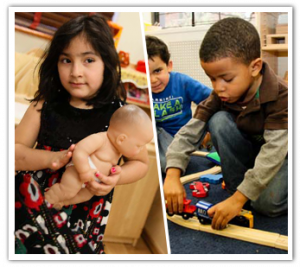
Source: Made You Look
It finally happened.
I’ve always heard people talk about that period in your mid-twenties, a couple years out of college, when all of your friends start to get married.
I was skeptical that this was a real thing that existed, but now it seems like everybody I know is putting a ring on it and getting ready to tie the knot.
And I’m truly happy for everybody embarking on this journey with a person they love — but can I kindly ask that you stop asking me when I’m getting married?
Although we like to think we’ve moved beyond a time where women in particular are tied to traditional gender roles and expectations that include the assumption that they’ll marry a man, the constant nagging of young women about when they’ll get married is proof that these times aren’t quite behind us.
Now, I understand why you’re asking me this question. I really do. I’ve been in a relationship for well over five years, and my partner and I are devoted to each other.
But after we moved in together several years ago, the question on everybody’s mind seemed to be “Why aren’t you married yet?”
Even worse, when I tell them we aren’t planning on settling down anytime soon, I’m typically met with reactions ranging from shock to disgust.
And this experience certainly isn’t unique to me. I hear my friends tell me almost constantly about the pressure they feel from their family and friends to find somebody and settle down.
The reality is that once you reach a certain age, the questioning seemingly becomes inevitable. People expect you to get married, and if you don’t meet that expectation — or don’t even want to — things get complicated.
But there are a whole host of reasons why people can’t or don’t want to get married or don’t want to get married yet. Much like constantly asking about when somebody will have children, this is one question I implore you to stop asking.
So here are six reasons you should stop asking women when they will settle down.
1. It Attaches a Woman’s’ Worth to Their Partner
I shouldn’t have to say it, but I will: I am enough on my own.
I do not need a spouse to complete me. And neither do you. When people ask why I’m not married yet, all I hear is that I’m not good enough on my own. Let me assure you that my relationship status is not even close to the most interesting thing about me.
For many, questions about marriage directly counteract our own journeys of self-worth and self-love.
In a world where women and other marginalized groups are constantly told that they aren’t good enough, telling yourself you are worthy of love and attention on your own is nothing short of revolutionary.
So when you come into the picture and suggest that “Well, maybe you’d be a lot better off with a partner by your side,” that can un-do a lot of that hard self-love work and perpetuate some messed up messages we take as societal norms.
What this does is tell a person that they aren’t enough on their own — that they need another person to be whole. In feminism, this is something we actively fight back against.
People are equally worthy of love, care, and respect no matter who they are or how they identify, simply because people are inherently worthy of these things.
And speaking of societal norms…
2. Asking About Marital Status Is Seriously Heteronormative
Constantly asking somebody when they will get married more often than not relies on the assumption that they are seeking a heterosexual coupling.
Now, don’t get me wrong — straight people aren’t the only ones out there feeling the pressure to settle down.
However, often this pressure is focused on pushing even LGBTQIA+ folks to find themselves in a heterosexual relationship and settle down.
It’s also important to remember that many couples can’t legally get married. So when LGBTQIA+ folks field a barrage of inquiries about when they’ll take the plunge, how are they supposed to feel if they aren’t legally able to make this kind of commitment?
By pushing questions about marriage, we’re delegitimizing the relationships that exist outside of that institution for those who don’t have the privilege of making that choice.
We erase their experiences, love, and commitment for the sake of demanding the only kind of relationship deemed to be legitimate by society.
Let’s remember that love doesn’t only exist in our society’s preconceived heteronormative notion of what marriage should look like. Love exists beyond marriage, beyond heterosexual relationships, and even beyond two-person relationships.
These relationships are just as valid and meaningful as those between married couples, and we should recognize that.
3. And It Throws Back to Sexist Gender Norms
The implication that women need a partner in order to be complete has some serious implications.
It harkens back to a time when women were quite literally treated as property transferred upon marriage from their father to their husband and had no legal rights of their own.
So when we prod women about their marital status and desires, we’re perpetuating the roots of these questions and the patriarchal systems they’re embedded in.
These questions also often rely on sexist stereotypes about what men and women should be.
This is why questions about when you’ll get married are often followed up with additional disclaimers about how you need someone to do the work around the house or concern over your “need” to have children.
These questions are all based in outdated and sexist gender roles that regulate women to homemakers and men to providers. And the cost?
Erasure of everybody who falls outside of these outdated gender norms and the binary system of gender.
4. It Belittles Accomplishments and Silences Goals and Dreams
Tied to the throw-back to outdated gender norms is the way that incessant nagging about marriage makes way for the erasure of the accomplishments and goals of women.
Once again, this harkens back to a time where societal norms dictated that the goals of women need not extend beyond finding a husband and having children.
By assuming that marriage is the end-all-be-all goal of all women, we revert back to this same way of thinking.
Often, we not only expect marriage to be the ultimate goal of most women, but as a society we also shame those who don’t subscribe to this way of thinking.
Women who put their career ahead of finding a partner or having a family are said to be selfish or self-indulgent.
But there is nothing wrong with putting yourself first, and we shouldn’t be shaming unmarried people who take pride in themselves and their own goals and accomplishments.
5. It Assumes People Don’t Know What Is Best for Themselves
Here are some additional statements I often field when somebody asks me why I’m not married or don’t want to be at the moment:
- “You just don’t understand how much better marriage is.”
- “Wouldn’t it be easier for you to just get married?”
- “Did you know you get tax credits? What about health insurance?”
- “But your biological clock is ticking!”
Maybe you’re sensing a theme here: These statements all imply that I don’t know what is best for myself and my own life.
I’m quite glad we’re close enough that you feel like you know what I need in my life, but quite frankly, I’m not here for it. The only person entitled to an opinion on my life is myself, and the decision of when or if to get married is my own to make.
By asking people when they’re getting married and following up with these sort of questions, we take away their own agency and power.
Instead of empowering the people we are supposed to care about to take charge of their own lives and decisions, we strip them of those choices by trying to push whatever we think is best for them.
There is nothing wrong with getting married and wanting the people you care about to experience the happiness you probably associate with that. But there is something wrong with telling them that you know better than they do about their own lives.
6. Marriage Simply Isn’t for Everybody
Last, but certainly not least, marriage just isn’t for everybody.
Asking when somebody will get married implies that everybody should want that when the truth is that so many just don’t.
Marriage is a seriously loaded commitment. It comes with responsibilities, expectations, and consequences that aren’t to be taken lightly.
Although our culture romanticizes marriage by telling young women and girls that it is something to aspire to, there are dozens of perfectly legitimate reasons why people have written off the whole institution.
The marriage industry makes some serious bank off of the sexist implication that women go “crazy” and become bridezillas anytime somebody offers them a ring and a lifetime commitment. They make billions of dollars off of white dresses and elaborate ceremonies rooted in problematic patriarchal traditions.
The LGBTQIA+ equality movement has made major strides in marriage equality, but many point out that the movement has bigger fish to fry including general protections and rights.
And of course, many just don’t feel like marriage is right for them. There is nothing wrong with people assessing their own life and making that judgement, and nobody should feel ashamed for having reached that decision for themselves.
***
What it all boils down to is that people will get married when or if they want to; I know I will. So let’s stop pushing people into the predetermined life path we (or society) deem fit for them.
Instead, we should empower the people we care about to embrace their own inherent self-worth, go after their goals, and reflect on all they have accomplished with or without a partner to share it with.
[do_widget id=”text-101″]
Ally Boguhn is a Contributing Writer for Everyday Feminism and a feminist activist and media researcher living and working in Washington, DC. She completed both her B.A. in Communications and Art History as well as her M.S. in Professional Communications at Clark University, where she researched abortion debate rhetoric. Ally is also the founder and editor of Because I am a Woman, a blog devoted to intersectional feminism and reproductive justice. In her spare time, you can find her at an art museum, consuming massive amounts of coffee while writing, or trying to convince her cat to go for walk. You can follow Ally on Twitter @AllyBoguhn. Read her articles.
Search our 3000+ articles!
Read our articles about:
Our online racial justice training
Used by hundreds of universities, non-profits, and businesses.
Click to learn more




















